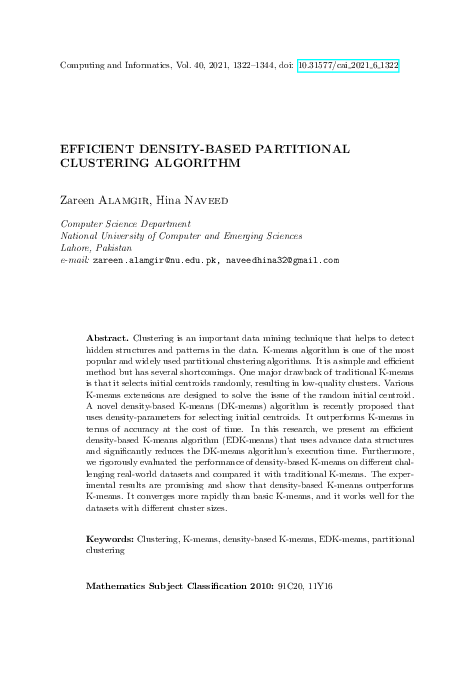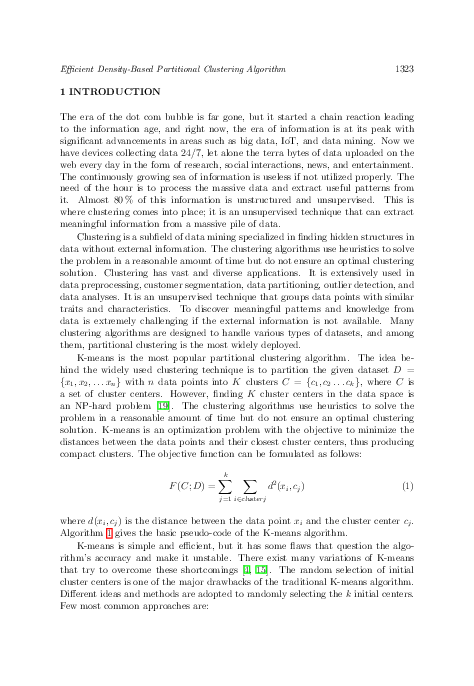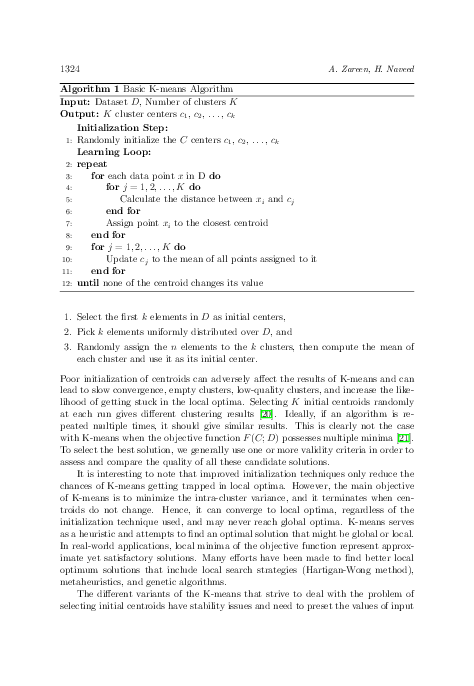Efficient Density-Based Partitional Clustering Algorithm
keywords: Clustering, K-means, density-based K-means, EDK-means, partitional clustering
Clustering is an important data mining technique that helps to detect hidden structures and patterns in the data. K-means algorithm is one of the most popular and widely used partitional clustering algorithms. It is a simple and efficient method but has several shortcomings. One major drawback of traditional K-means is that it selects initial centroids randomly, resulting in low-quality clusters. Various K-means extensions are designed to solve the issue of the random initial centroid. A novel density-based K-means (DK-means) algorithm is recently proposed that uses density-parameters for selecting initial centroids. It outperforms K-means in terms of accuracy at the cost of time. In this research, we present an efficient density-based K-means algorithm (EDK-means) that uses advance data structures and significantly reduces the DK-means algorithm's execution time. Furthermore, we rigorously evaluated the performance of density-based K-means on different challenging real-world datasets and compared it with traditional K-means. The experimental results are promising and show that density-based K-means outperforms K-means. It converges more rapidly than basic K-means, and it works well for the datasets with different cluster sizes.
mathematics subject classification 2000: 91C20, 11Y16
reference: Vol. 40, 2021, No. 6, pp. 1322–1344


